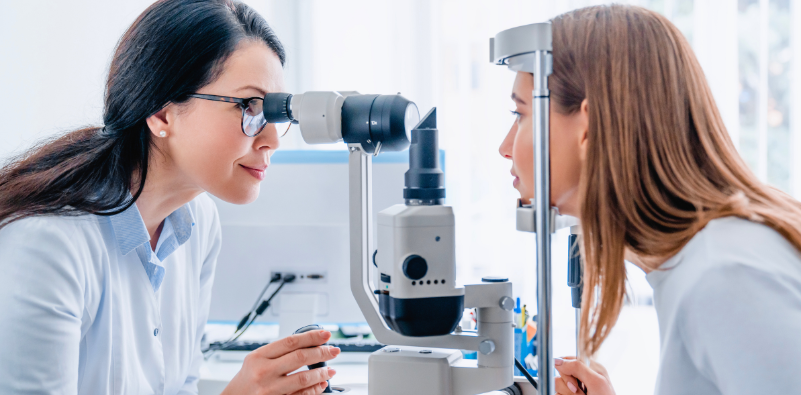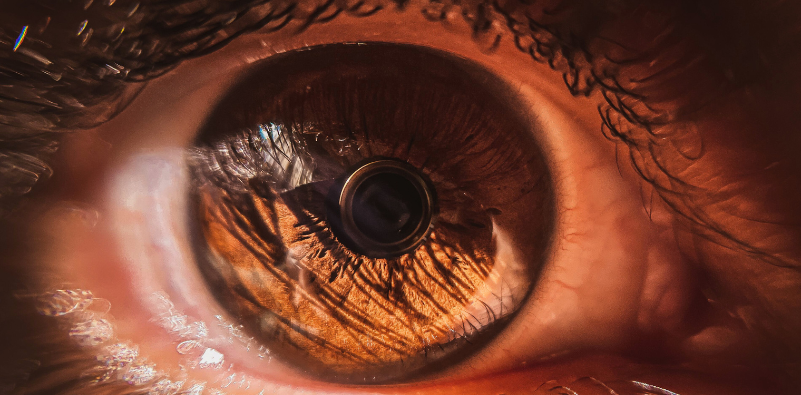The Importance of Regular Eye Tests for Children
The Importance of Regular Eye Tests for Children
At Harrolds Opticians and Audiologists, we believe that healthy vision and hearing are essential for a child's overall well-being and development. In this blog, we'll explore the crucial topic of why it is essential for children to have regular eye tests and hopefully provide you with some valuable insights and information to ensure the best possible vision and eye health for your little ones.
The Developing Eyes of Children
The eyes of children are constantly changing and developing, just like the rest of their bodies. A child's visual system goes through significant transformations from birth until around the age of 8. During this time, their brains are actively learning to process visual information, and any issues that arise during this critical period can have lasting effects.
Early Detection is Key
Many vision problems in children can go unnoticed. Young children may not be able to communicate that they are experiencing vision difficulties because they may not realise that what they see is abnormal. Regular eye tests are crucial because they can detect issues even before symptoms manifest. Early detection can make a significant difference in treating vision problems effectively.
Academic Success and Social Development
Good vision is vital for a child's academic success. Over 80% of learning is visual, so any vision problems can hinder a child's ability to read, write, and learn. Undiagnosed vision issues can lead to frustration, poor performance in school, and a lack of interest in learning.
Additionally, good vision plays a pivotal role in a child's social development. It helps them interact with their peers, participate in sports and extracurricular activities, and build self-confidence. Children with uncorrected vision problems may feel isolated or left out, impacting their overall well-being.
Vision Problems in Children
Some common vision problems that can affect children include:
1. Refractive Errors:
● Myopia (nearsightedness)
● Hyperopia (farsightedness)
● Astigmatism
2. Amblyopia (Lazy Eye): A condition where one eye does not develop properly, leading to reduced vision in that eye.
3. Strabismus (Crossed Eyes): A condition where the eyes do not align properly, which can affect depth perception and coordination.
4. Colour Vision Deficiency: Difficulty distinguishing between colours, commonly known as colour blindness.
The Benefits of Regular Eye Tests
- Early Intervention: Catching vision problems early can prevent them from becoming more severe and difficult to treat.
- Improved Academic Performance: Correcting vision issues can lead to better academic results and a more enjoyable learning experience.
- Enhanced Social Skills: Good vision helps children engage with their peers and build lasting friendships.
- Confidence Boost: Addressing vision issues can boost a child's self-esteem and overall confidence.
- Safety: Good vision is essential for safe activities like sports, biking, and crossing the road.
When to Schedule Eye Tests
Whilst usually, we recommend that you are seen and have your eyesight reviewed at least every 12 months, your optician will advise as to when you or your child should have your next eye test. Please note that sight tests on the NHS are free for young persons and children in full-time education.
At Harrold's Opticians and Audiologists, we understand the unique needs of children when it comes to eye care. Our friendly and experienced team across the country are dedicated to providing a comfortable and nurturing environment for young patients. We use state-of-the-art technology to assess your child's vision accurately, and our professionals are skilled in communicating with children to make the process as stress-free as possible.
Investing in your child's vision health today can lead to a brighter and more successful future.
Remember, regular eye tests for children are more than just an appointment; they're an investment in your child's health, happiness, and success.











